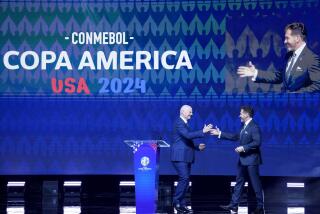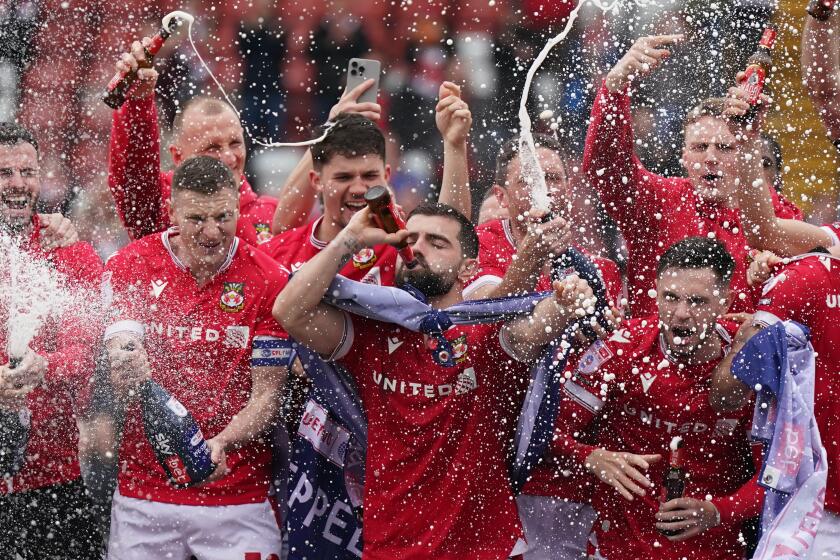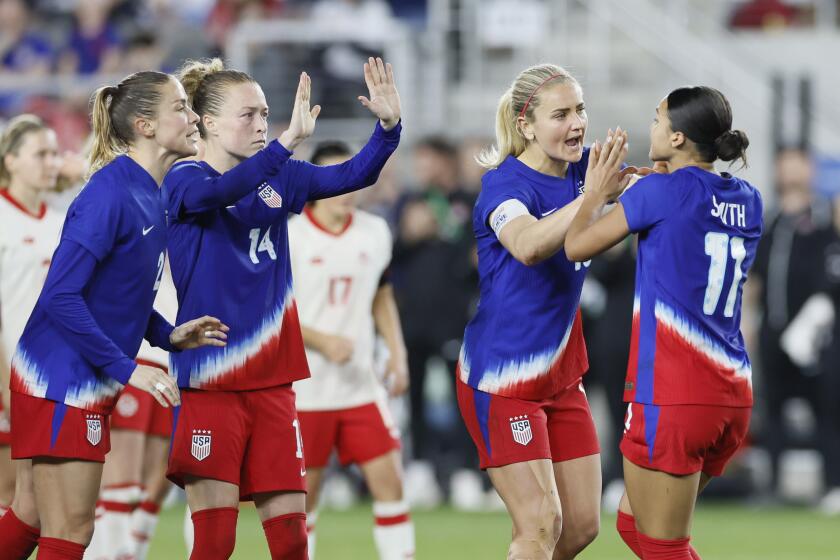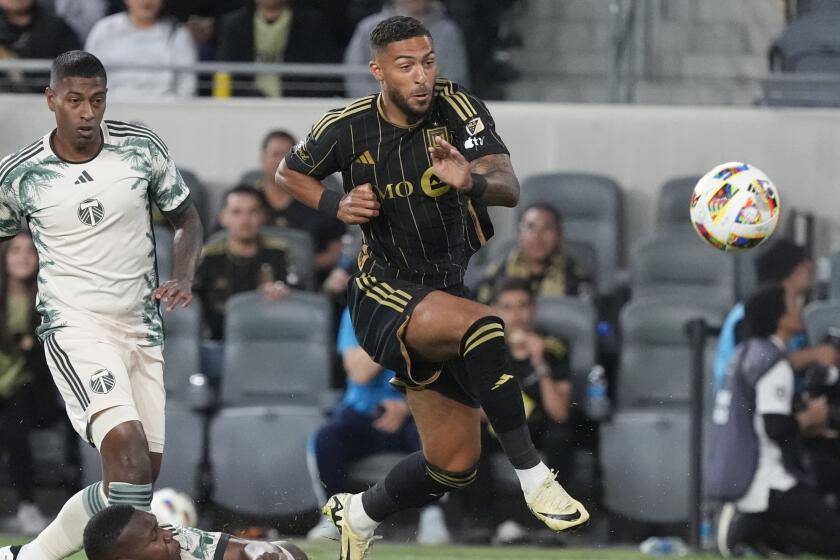World Cup’s brave new world
The game wasn’t pretty, but in this World Cup tipped upside down, it makes sense that a loss equaled a win for a U.S. team that now advances to the knockout stage.
By staying close to Germany in a rain-soaked 1-0 defeat, the Americans sneaked through pool play by way of a goal-differential tiebreaker.
“It doesn’t matter how you get things done,” U.S. defender Omar Gonzalez said. “As long as you get them done.”
Few predicted the U.S. would finish second to Germany — ahead of Portugal and Ghana — in the tournament’s toughest group. But the unexpected has become routine in Brazil, especially for teams from North and Central America.
An unprecedented three countries from the region, usually overlooked when the world gathers every four years to play soccer, have now reached the round of 16. Mexico and Costa Rica qualified previously.
At the same time, Portugal isn’t the only traditional European power to wilt in the heat and humidity. England, Italy and defending champion Spain have all gone home.
The past two weeks have also brought wild finishes, controversial calls and flash floods.
“Incredibly entertaining,” said Bruce Arena, the former national coach who is now with the Los Angeles Galaxy. “A lot of goals have been scored. This has been one of the best World Cups in the last 12 years.”
High-octane offenses and upset victories haven’t been the only topic of conversation as off-the-field issues took precedence in the hours before the U.S.-Germany game.
Thursday began with torrential rains that flooded the streets around the stadium in Recife. Then came word that officials had suspended Luis Suarez, the talented striker from Uruguay, for nine international games, effectively ending his World Cup.
The 27-year-old Suarez became an instant figure of controversy on social media worldwide when he bit an Italian defender on the shoulder during Tuesday’s game. In addition to his international ban, he must pay a $112,000 fine and is suspended from all soccer-related activity for four months. It will keep him on the sidelines when his club team, Liverpool, opens the English Premier League season in August.
“Such behavior cannot be tolerated on any football pitch and in particular not at a FIFA World Cup, when the eyes of millions of people are on the stars on the field,” said Claudio Sulser, chairman of the disciplinary committee for FIFA, the sport’s governing body.
Back on the field, the deciding games in Group G began amid a growing realization that geography has played a major role in the tournament’s volatility.
While South American teams are performing well — Brazil, Argentina and Uruguay have won nine of the 19 World Cups — many other squads simply weren’t built for humidity and temperatures in the 80s.
“It’s very, very difficult to win a World Cup for a European team in South America,” said Juergen Klinsmann, who spent most of his life playing for and coaching Germany before taking over the U.S. program three years ago.
The conditions don’t feel quite so foreign to members of CONCACAF — the Confederation of North, Central American and Caribbean Assn. Football — an awkwardly titled region that stretches from Canada south to Panama.
Not only are CONCACAF teams accustomed to warm weather, they often play on less-than-perfect fields and — because of the region’s scope — are used to traveling longer distances than teams from other parts of the world.
In Brazil, the games have been staged at far-flung locales ranging from metropolitan stadiums to fields built in the jungle. With preparations marred by work stoppages and civil unrest, some venues weren’t completed until the last minute.
Galaxy coach Arena sees another reason for CONCACAF teams’ victories: “We’re getting better.”
A talented Mexico gained early momentum from its 0-0 tie with heavily favored Brazil. Costa Rica has proven to be a dangerous team on the attack.
The U.S., meanwhile, has built its squad on defense and a goalkeeper — Tim Howard — considered among the best in the world.
His saves gave the Americans a chance to scramble for a 2-1 victory against Ghana in the opener. He also came up big against Portugal.
In a sign of just how crazy this tournament has been, that 2-2 result felt like a loss as Portugal tied the game with seconds remaining. On Thursday, a defeat from Germany brought smiles.
“It’s not unique just to soccer,” said Sunil Gulati, president of the U.S. Soccer Federation. “Any time you have pool play, this kind of situation is possible.... We lost the last game, but we’re advancing.”
As Klinsmann put it: “I’m glad it’s over.”
The U.S. coach was happy to be done with pool play, which forced him to prepare his team for three different opponents in a short span. He did not particularly like that his team’s survival relied at least partially on the results of other games.
Now the Americans can push all that aside and focus on playing Belgium on Tuesday.
“There is a very clear picture in front of you,” Klinsmann said. “You’ve got to win the game.”
For the first time, this chaotic World Cup seems simple.
Baxter reported from Brazil. Wharton reported from Los Angeles.








